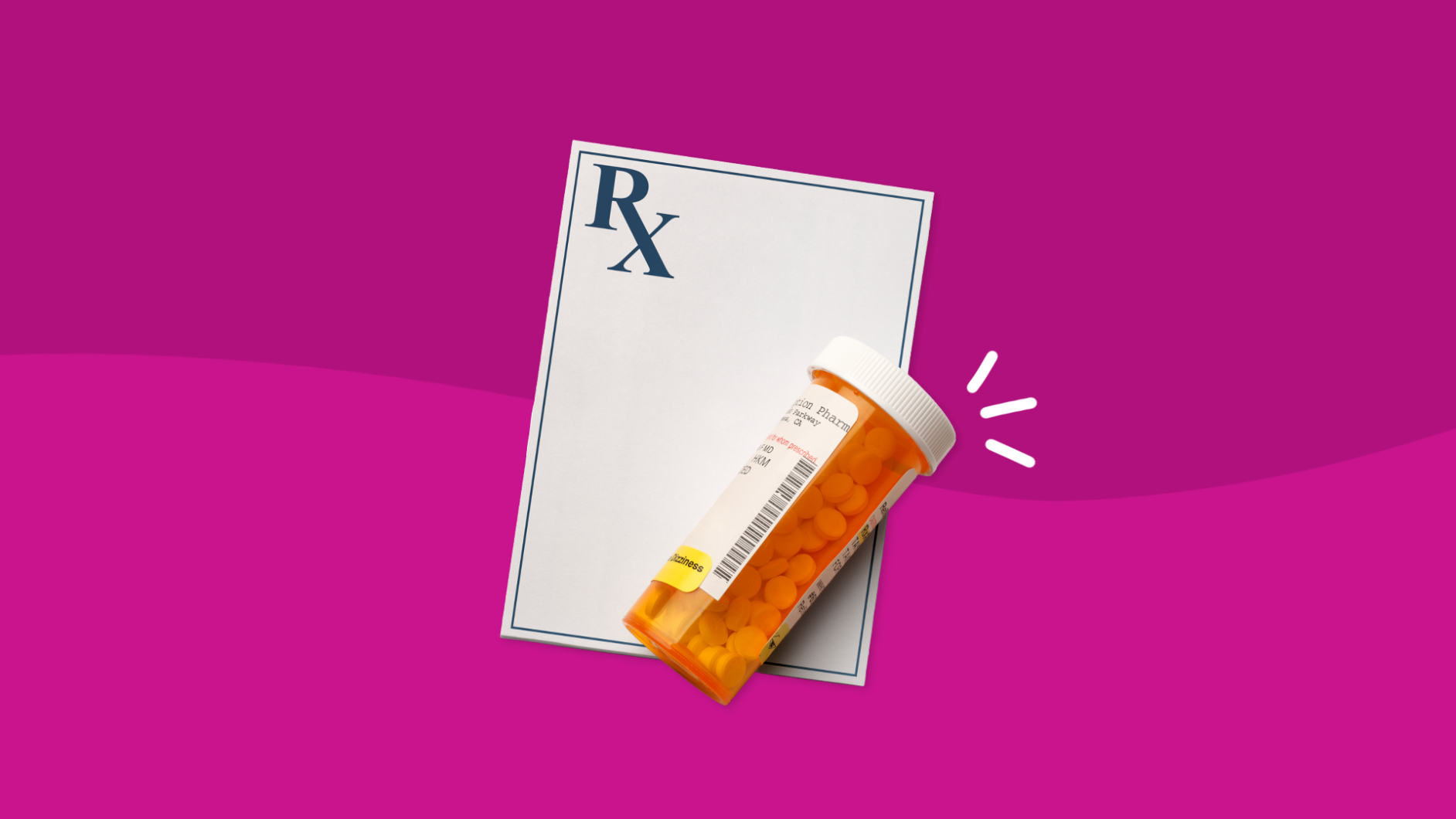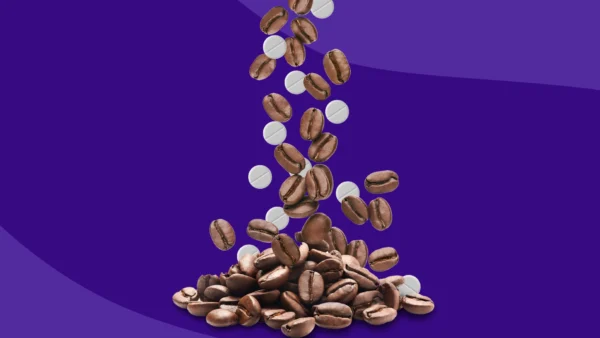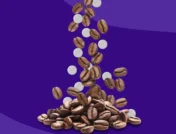Concerta side effects | Weight loss | Headaches | How long do side effects last? | Warnings | Interactions | How to avoid side effects
Concerta is the brand name for methylphenidate hydrochloride, an FDA-approved central nervous system stimulant medication used in the treatment of children and adults with attention-deficit hyperactivity disorder (ADHD). ADHD is a chronic condition causing impulsivity, attention difficulty, and hyperactivity.
Concerta works by increasing the brain’s levels of the neurotransmitters dopamine and norepinephrine, which improves the way different parts of the brain communicate with each other. Concerta makes hallmark ADHD symptoms and the everyday challenges that come with them more manageable.
Concerta may also be prescribed to treat narcolepsy, a chronic sleep disorder causing daytime sleepiness. As a Schedule II drug, it has the potential to lead to drug dependence or abuse, so treatment should be monitored regularly by a healthcare provider. Let’s investigate the possible side effects, warnings, and interactions of Concerta.
RELATED: What is Concerta?
Common side effects of Concerta
Some people who take Concerta may not experience any side effects, but the most commonly reported are:
- Diminished appetite
- Nausea
- Dry mouth
- Insomnia or trouble sleeping
- Dizziness
- Stomachache or abdominal pain
- Headache
- Increased sweating
- Increased nervousness
- Increased heart rate
- Irritability
- Nervousness
- Depression
- Blood pressure changes
- Visual disturbances
- Weight loss (reported with long-term use)
Weight loss
It is possible to lose weight when taking Concerta. It can cause a diminished appetite and increase metabolism, which might result in weight loss in some people. Clinical trials showed a 6.5% incidence of weight loss in a group of adults who took Concerta versus 3.3% in the group taking a placebo. In cases of concerning weight loss, consult with a doctor for tips on maintaining a healthy weight.
Headaches
Headaches are one of the most common side effects of Concerta, often occurring within the first few weeks of starting the medication. According to placebo-controlled, double-blind clinical trials, headache occurred in 22.2% of adults who were given Concerta versus an occurrence of 15.6% in people who took a placebo. Headaches can be minimized by taking Concerta with food or managed with over-the-counter pain medications such as aspirin or Tylenol. If headaches are persistent, worsening, or new, it is important to consult with a healthcare provider.
Serious side effects of Concerta
Although serious side effects from Concerta are rare, the following might occur:
- Changes in eyesight or blurred vision
- Dependency or abuse
- Psychosis
- Mania
- Aggression
- Tourette syndrome (a disorder characterized by repetitive movements or sounds)
- High blood pressure
- Myocardial Infarction (MI, a blockage of blood flow to the heart)
- Stroke
- Fast heart rate and other heart problems
- Seizures
- Sudden death
- Anaphylaxis (a serious allergic reaction)
- Hypersensitivity reaction (abnormal immune response)
- Exfoliative dermatitis (inflammation of the entire skin surface)
- Erythema multiforme (a skin disorder with bullseye-shaped lesions)
- Low levels of platelets, white blood cells, or red blood cells
- Blockage of the small intestine, stomach, or esophagus
- Pancytopenia (problems with the bone marrow)
- Priapism (prolonged erection of the penis)
- Peripheral vasculopathy (reduced blood flow to the limbs)
- Raynaud’s phenomenon (coldness and numbness caused by restricted blood supply)
- Growth suppression (with long-term use)
- Rhabdomyolysis (a breakdown of muscle tissue that releases a damaging protein into the blood)
- Hepatotoxicity (toxic liver disease)
Mood changes
In clinical trials, depression occurred at a rate of 1.7% with Concerta versus 0.9% with a placebo; anxiety occurred at a rate of 8.2% versus 2.45%. Mood changes, irritability or aggressive behavior may also occur. Patients should seek medical attention if they are experiencing new or worsening mental health symptoms, and should be monitored for worsening hostility and aggression.
Concerta high and withdrawal
Concerta is a controlled substance and Schedule II stimulant that has a potential for abuse because it is habit-forming. Concerta should never be taken without a prescription, and taking the medication exactly as prescribed can reduce the likelihood of abuse. Dependence on the drug makes a person feel they must take it to feel “normal,” have strong urges to take the drug, or need more of it to get the same effect. Because Concerta activates the reward center in the brain, high doses can result in a “high” from the release of dopamine.
Withdrawal symptoms of Concerta begin 24 hours after the last dose and can last up to seven days. Symptoms may include: irregular heart rate or blood pressure, nausea, headaches, mood swings, anxiety or depression, extreme fatigue, irritability, nightmares, panic attacks, foggy brain, increased appetite, depression, suicidal thoughts and psychosis.
Withdrawal is more likely in people who have been taking the drug for a long time or in high doses. To discontinue use of Concerta, consult with a doctor for help with tapering the dosage instead of quitting suddenly to help minimize withdrawal symptoms. Misuse of Concerta can result in severe withdrawal symptoms, so careful supervision is required.
How long do Concerta side effects last?
Most of the side effects from Concerta are temporary and end when the body adjusts to the medication, usually in the first week, although a diminished appetite may linger. If any side effects are intolerable, or last longer than a week after starting Concerta, a healthcare provider should be consulted for medical advice. Long-term use of stimulant medications may lead to dependence and abuse, high blood pressure, increased heart rate, seizures, vertigo, rashes, mood swings, and hallucinations.
Concerta contraindications & warnings
Overdose
A dose of up to 54 mg per day is approved for use in children ages 6 to 12 years old. In adolescents ages 13 to 17 years old dosage should not exceed 72 mg. The recommended maximum daily dose in adults is 72-108 mg.
According to the FDA, symptoms of Concerta overdose include: vomiting, agitation, tremors, hyperreflexia, muscle twitching, convulsions (which may be followed by coma), euphoria, confusion, auditory or visual hallucinations, delirium, excessive sweating, flushing, headache, hyperpyrexia (a fever over 106 degrees Fahrenheit), tachycardia (rapid heartbeat), palpitations, cardiac arrhythmia, hypertension, mydriasis (dilated pupils), and dryness of the mucous membranes.
In cases of overdose, seek medical attention. The patient should be protected against self-injury as well as external stimuli that might exacerbate symptoms. Measures may be taken such as gastric lavage (stomach pumping), or administration of activated charcoal (to absorb the toxin) and a cathartic (to clean out the contents of the stomach). It may be necessary to monitor patients in an intensive care setting to ensure adequate circulatory and respiratory exchange.
Restrictions
Concerta should be used with caution in patients who have:
- Severe GI stricture or esophageal stricture—an abnormal tightening of the esophagus
- Hyperthyroidism
- Hypertension (high blood pressure)
- Serious heart problems such as CHF (congestive heart failure) or arrythmias
- A history of psychosis, seizures, or bipolar disorder
- A history of substance abuse or alcoholism
Concerta is a Pregnancy Category C drug that has not been studied in people who are pregnant. It should only be used during pregnancy if the benefits justify the risks. Caution should be exercised if Concerta is being taken while breastfeeding because it is not known if Concerta is excreted in breast milk.
Concerta should be avoided in patients who have:
- Experienced hypersensitivity reactions to methylphenidate, such as anaphylaxis, a severe and potentially life-threatening allergic reaction, or angioedema—swelling under the skin
- Severe anxiety, tension, or agitation because it can worsen these symptoms
- Glaucoma
- Taken an MAO inhibitor within the last 14 days
- Tourette syndrome, motor tics, or a family history of Tourette syndrome
- Severe cardiovascular disease, cardiac structural abnormalities, severe arrhythmias, cardiomyopathy, or coronary artery disease
The safety of Concerta has not been established in children younger than 6 years old or in people older than 65 years old.
Concerta interactions
The following drugs are contraindicated with Concerta:
- Isocarboxazid (Marplan), a monoamine oxidase inhibitor (MAOI)antidepressant. When combined with Concerta, a severe increase in blood pressure may occur that could lead to a stroke.
- Phendimetrazine tartrate (Bontril), an appetite suppressant/stimulant. When combined with Concerta, there is increased risk of hypertension and other cardiovascular and CNS stimulatory effects.
- Phenelzine sulphate (Nardil, a monoamine oxidase inhibitor (MAOI), which can result in hypertensive crisis when taken with Concerta.
- Safinamide (Xadago), a monoamine oxidase-B inhibitor used in Parkinson’s disease, which can cause hypertensive crisis or increase risk of serotonin syndrome when taken with Concerta.
- Selegiline or selegiline transdermal (Eldepryl, Zelapar), anti-Parkinson monoamine oxidase inhibitor, which can result in hypertensive crisis when taken with Concerta.
- Tranylcypromine sulfate (Parnate, an MAOI that may result in hypertensive crisis when taken with Concerta.
The following drugs should be avoided or used with extreme caution together with Concerta:
- Alcohol should be avoided when taking Concerta. When combined, nervous system side effects such as drowsiness, anxiety, depression, and seizures may occur.
- Antidepressants including tricyclics and SSRIs (selective serotonin reuptake inhibitors) may increase risk of serotonin syndrome when taken with Concerta.
- Seizure medicines (anticonvulsants such as phenobarbital, phenytoin, and primidone) may increase the risk of side effects and seizures.
- Blood thinner medications when taken with Concerta may increase the risk of bleeding.
- Blood pressure medications may be less effective when taken with Concerta, leading to high blood pressure..
- Cold or allergy medications that contain decongestants should not be taken with Concerta; increased heart rate or blood pressure may occur.
- Other stimulants
Other medications taken together with Concerta may require adjustments or increased monitoring.
How to avoid Concerta side effects
The most common side effects of Concerta are headache, stomachache, insomnia, dizziness, nervousness, weight loss, and decreased appetite, which are also common with the ADHD medications Ritalin and Adderall. Fortunately, some side effects can be avoided or minimized by following these four steps.
1. Take the minimum prescribed dosage
To lower the risk of side effects, Concerta should be taken at the minimum dose that manages symptoms, and only as prescribed by a doctor. Concerta is an extended release tablet that uses a unique OROS (osmotically active trilayer core) delivery system. Three layers of the drug deliver the medication in immediate and delayed release throughout the day, reaching peak concentration in the blood within six to 10 hours of ingestion.
Concerta should be taken orally with or without food once a day, at the same time each morning. Different strengths are available: 18 mg, 27 mg, 36 mg, and 54 mg caplets.
In people who are experiencing troublesome side effects, a healthcare professional can adjust the dosage and make further recommendations. Concerta should not be crushed, broken, or chewed- it should be swallowed whole and taken at the same time each day (with or without food). For best results, take Concerta every day.
2. Disclose your full medical history
It’s important for patients to discuss their complete health history with their doctor before taking Concerta, including any supplements they are taking. Concerta may not be recommended in patients with certain heart conditions, hyperthyroidism, glaucoma, a history of tics or Tourette syndrome, severe hypertension or cardiac disease, or bipolar disorder. Always follow a doctor’s medical advice.
3. Avoid interactions
Alcohol should be avoided when taking Concerta as it may contribute to side effects and interfere with the controlled release of the drug. In patients taking MAOIs, blood thinners, anticonvulsants, decongestants, and some antidepressants, the use of Concerta is not advised.
4. Discuss long-term use with your provider
Long-term use of Concerta (for more than four weeks) has not been studied, so use of the drug in individual patients should be monitored regularly by the prescribing physician.











